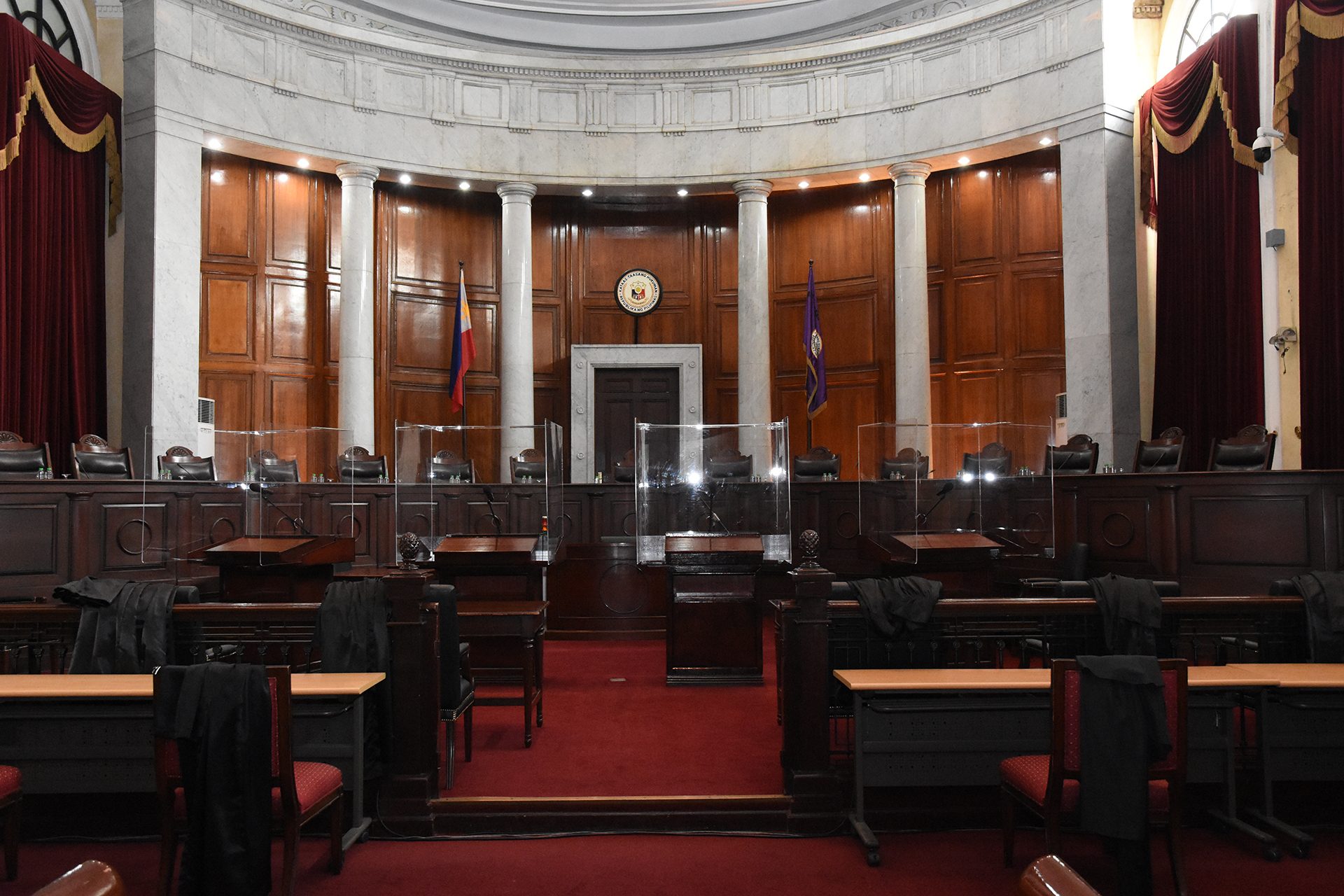SUMMARY
This is AI generated summarization, which may have errors. For context, always refer to the full article.

Day 4 of the Supreme Court’s anti-terror law oral arguments was not without its light moments when Justice Amy Lazaro Javier made mention of Captain Ri, a reference to the character played by Korean star Hyun Bin in the hit K-drama Crash Landing on You (CLOY).

Constitutional law professor John Molo, known in his circles to be a fan of CLOY, immediately said at the first mention of Captain Ri, “Oh yes, I know him, your honor.”
Javier later clarified her Captain Ri was a fictional character in her fictional situation. She asked: What if Captain Ri, a soldier in Manila, gets a tip that someone in a house on a particular street in a Cainta, Rizal village is about to blow up 5 hospitals with a flick of his finger?
“I will dispatch my people to secure all the houses situated on Raven Street, restrain them and confiscate their cell phones and other gadgets. Then I will apply for a detention authority since I cannot yet determine who among these people is the IT genius assigned to detonate the bombs; I will need time to investigate,” said Javier, trying to probe into the practical necessity of having a harsh law to hunt down terrorists.
“Meantime, I cannot take the risk releasing anyone of them until I shall have on hand sufficient information or data to identify with specificity, who is the IT genius and his/her conspirators,” Javier added, also meaning to challenge petitioners’ assertions that the warrantless arrest and detention powers of the law are too oppressive.
“So, there. That would be my actions under the circumstances if I were Captain Ri. Do you think my actions are correct?” Javier asked.
“Your honor, they’re more than correct,” said Molo, who had made a point time and again during the oral arguments that practicality should always be within the bounds of constitutional rights.
Javier ended her interpellation with a positive note: “So in closing, professor, allow me to say this. Unlike the fictional character of Captain Ri, you and the rest of the team are true to life patriots. Congratulations and thank you for graciously responding to my questions.”
Sexual innuendoes?
Things, however, turned a bit bizarre when Associate Justice Mario Lopez sounded like he was making sexual innuendoes when discussing the crime of rape. Lopez interpellated criminal law expert Ted Te during oral arguments on Tuesday, March 2, about preparatory acts to a crime and whether they were punishable.
The justice first cited murder: “For example, buying a poison to kill a person – that is a preparatory act and it’s not punishable because the crime of murder may or may not happen.”
Te, having difficulty getting a word in, agreed.
Speaking in a louder voice, Lopez then said, “Similarly if one intends to commit rape, and he sharpens his weapon, is that a preparatory act, sharpening his weapon to commit rape?”
In the context of a sexual act, a man sharpening his “weapon” to commit rape inevitably carries a double meaning. The double entendre was not lost on many.
“With due respect, your honor, I don’t know how to answer that question,” Te said.
“You cannot answer, professor?” asked Lopez in an animated tone that sometimes turned combative.
Lopez later explained that Article 266-B lists one kind of rape as rape committed with “the use of a deadly weapon or by two or more persons.”
“Rape with the use of a weapon is a qualified rape punishable by reclusion perpetua to death, hindi ba (isn’t it)? It is the weapon that I said will be sharpened,” Lopez explained, perhaps realizing that what he said earlier could be interpreted differently.
Te answered, “It is not an essential element to rape your honor, it qualifies the offense of rape so I can’t even say if it’s preparatory.”
Lopez’s interpellation on preparatory acts ended up with him saying Congress has the power to legislate a law that specifies preparatory acts that can be considered a crime. In this case, the anti-terror law specified the preparatory acts of planning, inciting, and threatening to commit terrorism as crimes.
Lopez, a criminal law expert, also grilled Molo.
“I will refresh your criminal law,” Lopez told Molo, who also had difficulty getting a word in.
“There are 14 titles in the Revised Penal Code, crimes against property, crimes against persons, and your favorite one, crimes against chastity,” Lopez said.
Molo had to interrupt him, saying, “Not my favorite, your honor.”
“Hindi, biro lang (No, that’s only a joke),” Lopez said.
Day 5 of the oral arguments is on March 9. – Rappler.com
Add a comment
How does this make you feel?





There are no comments yet. Add your comment to start the conversation.